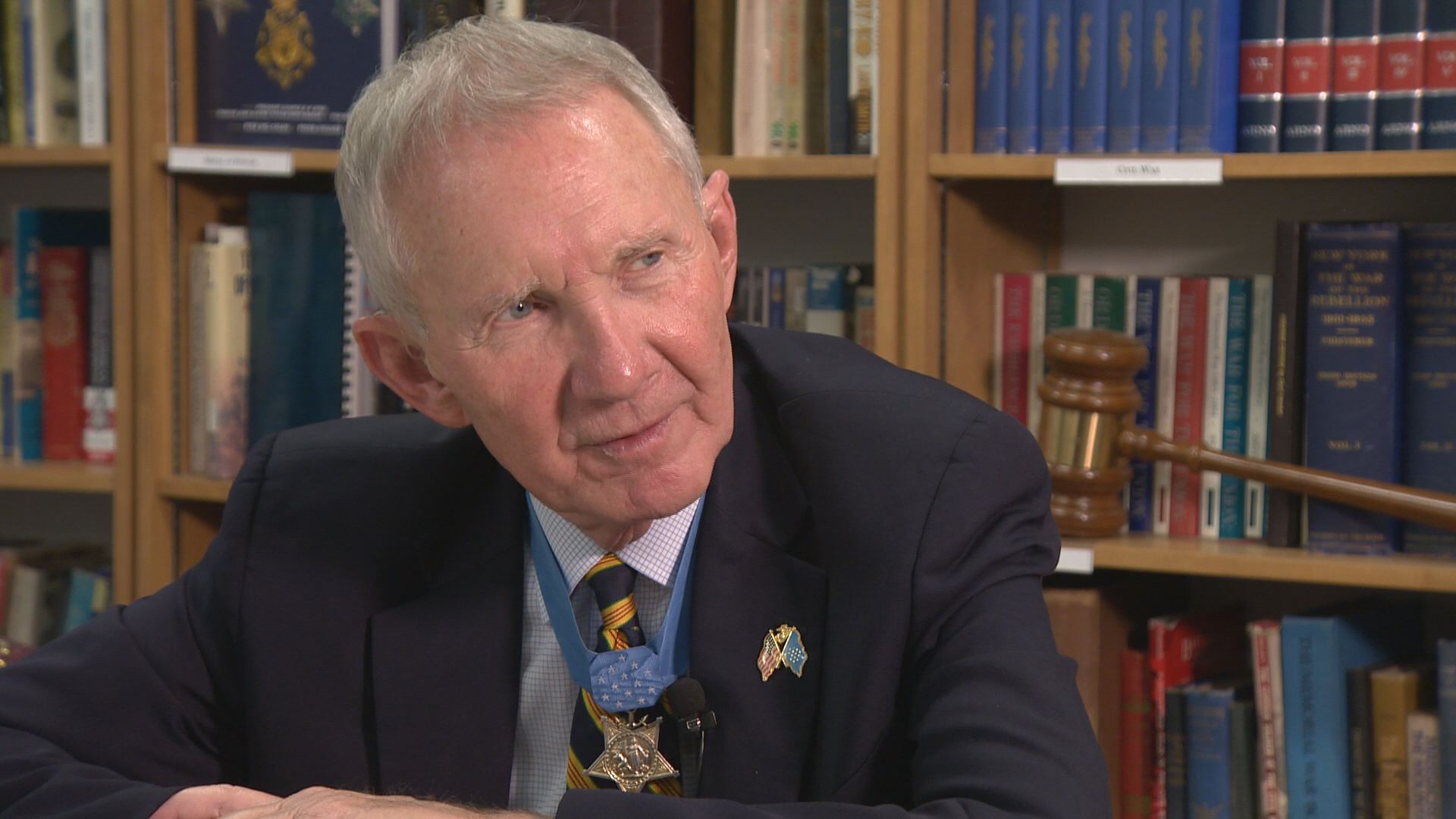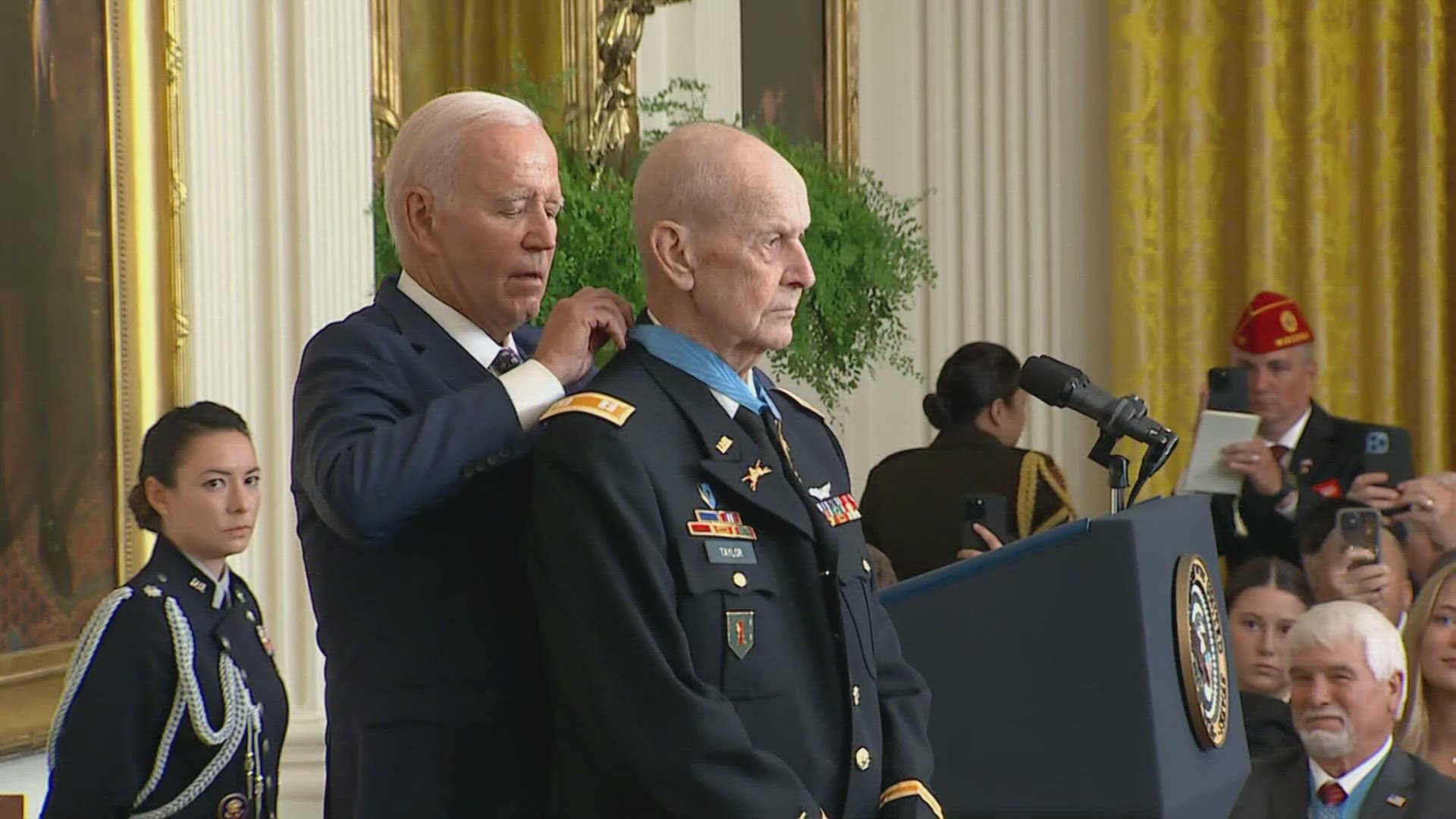Sharing their stories of valor to inspire others to live a life of service is the goal of Medal of Honor recipients.
Major General James Livingston has told his story countless times and recently he recounted it to WBIR's Robin Wilhoit. He says the medal has been a part of his life for decades but it's never defined his life.
James Livingston's story of extraordinary courage in combat deserves to be documented. The noble warrior and Medal of Honor recipient says it was his mother and father who planted the seed of discipline while growing up on a south Georgia farm.
"She was a pretty strict disciplinarian, so I was taught the work ethic, study ethic and expectations of success cause my mom had went through the 4th grade and my dad had went through the 7th grade. Neither one finished college," said Livingston.
He went to Auburn University to pursue a degree in engineering, never once thinking of joining the military until in 1961 when he was drafted into the Marine Corps.
He launched into what would become his career.
"I've commanded everything from a platoon, to a company to a barracks to a battalion to regiments to divisions to forces," he recalled.
But it was his act of bravery on a battlefield in Vietnam that garnered him the highest medal awarded for valor in combat.
On May 1, 1968, Capt. Livingston was commander of Echo Company. Word came that another company, Golf Company, was in trouble as it assaulted the town of Die Doe. North Vietnamese troops, hundreds of them, were dug in.
"The battalion commander called me about 3 o'clock and said 'I want you to go in and join forces with Golf Company,'" said Livingston. "At 5:00 I told the guys to fix their bayonets. I sort of used a football analogy. Earlier in Vietnam I used to talk about the high school training phase, now we are in college, but I said 'guys this is the NFL. Echo Company has been preparing for this and you guys can do it.' Nineteen to 20-year-old Marines looked at me and said, 'Skipper we got it.'"
Livingston led the charge a third of a mile through a rice paddy taking heavy enemy fire from 50 caliber machine guns and rocket-propelled grenades.
"They were killing all the Marines by shooting them in the heads," said Livingston.
Wounded by RPG blasts, Livingston and a handful of Marines pushed through enemy lines. In the end, as many as 500 North Vietnamese were dead.
"After we got the link up complete, we counted heads and with all the dead and wounded we started out with 180 we only had about 40 Marines still walking," Livingston said.
His story was far from over. Shortly after came another call for help. Nearby Hotel Company was under attack. Livingston and his remaining Marines charged into battle once again.
"We were going across hedgerow to hedgerow. That's the toughest fighting you can do because of that terrain," he described. "We came across the berm. There was a North Vietnamese with a 50 caliber machine gun and it was used to shoot at airplanes and he turned the son of a gun on me and shot me through the leg. I went down."
Livingston ordered his troops to withdrawal as he laid there prepared to defend them to his death.
"Both of them, wounded, said 'Skipper we aren't going to leave you and they drug me back.'"
Almost two years to the day, James Livingston was recognized for that courage under fire. President Richard Nixon presented him the Medal of Honor.
"I look at that award and I look at the 18, 19, 20 year olds who didn't make it back and the fact they never got the chance to be fathers and grandfathers and live the life they should have lived," he said.
Livingston went on to became a father, grandfather and Major General in the Marines, wrapping up a 34-year career of noble service.
General Livingston has traveled back to Vietnam three times since his service. A little irony here-- his escort every time is a Viet-Cong village chief for the town of Die Do. The guide actually led the North Vietnamese into that village, and he was shot about 200 yards from where Livingston was shot.


